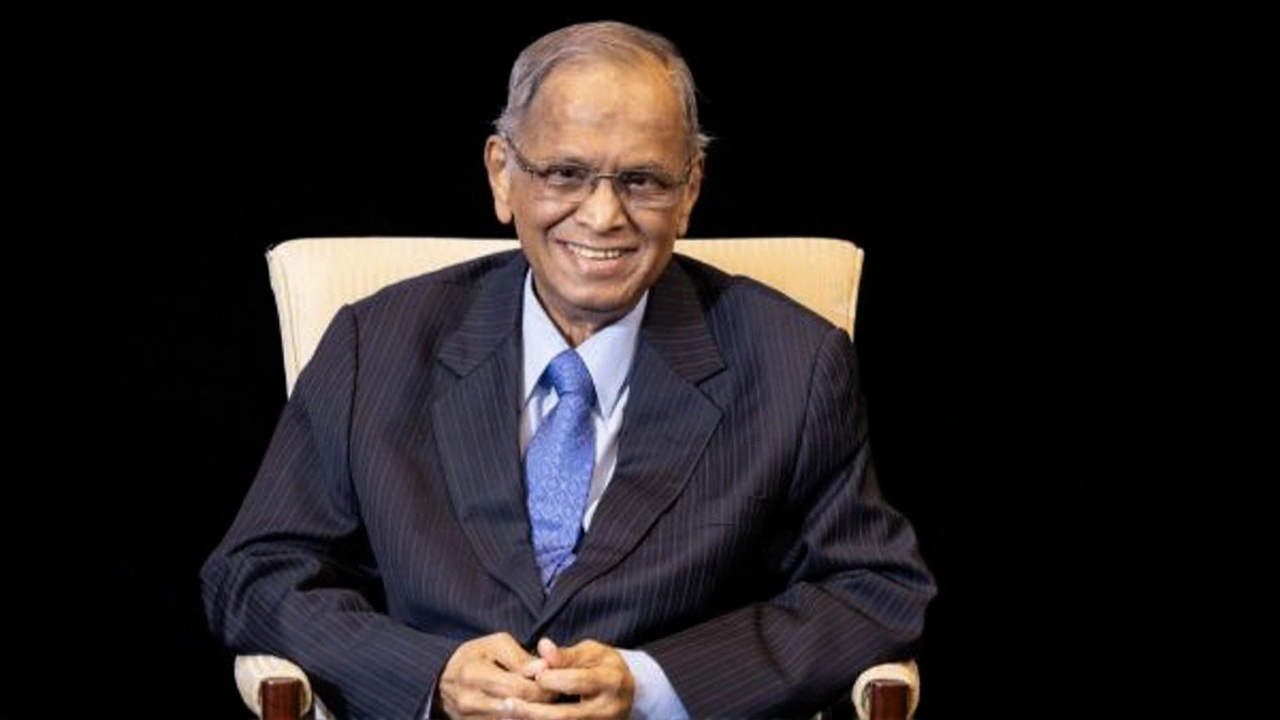When Narayana Murthy, co‑founder of Infosys took the stage at the CNBC Global Leadership SummitMumbai, India, he didn’t waste time on niceties. He bluntly told the audience that India’s shift to a five‑day workweek in 1986 was a mistake, and that the country should march back toward 14‑hour workdays if it wants to stay competitive. The comment sparked a firestorm on social media, with many hailing him as a visionary and others decrying the stance as archaic.
Why does this matter? Murthy isn’t just any retired executive; at 78 he still shapes opinion on the nation’s work culture. His words reverberate through boardrooms, universities and even the corridors of power, especially when he cites Prime Minister Narendra Modi as the benchmark for dedication. A single sentence from the summit – “I don’t believe in work‑life balance” – has become a meme in less than 24 hours.
Background: From Six Days to Five
India officially embraced a five‑day workweek in 1986, following a global trend toward shorter hours and perceived improvements in productivity and employee wellbeing. At the time, policymakers argued that a reduced schedule would modernise industry and attract foreign investment. Critics, however, warned that the shift could blunt the country’s competitive edge, especially in manufacturing and IT services where long hours were the norm.
For KV Kamath, Independent Director and Non‑Executive Chairman of Jio Financial Services, the debate is less about personal sacrifice and more about macro‑economic realities. In a 2023 interview he said, “India is still developing; we need to focus on output, not comfort.” Murthy’s recent remarks echo that sentiment, but they also revive a conversation that many thought had settled decades ago.
Murthy’s Personal Work Ethic
During the summit, Murthy walked the audience through a typical day in his own career. “I arrived at the office by 6:30 am and left around 8:40 pm, six and a half days a week,” he recounted, eyes shining. “I’m proud of it because it showed what relentless effort can achieve.” He stressed that his routine wasn’t a gimmick but a disciplined approach that helped Infosys grow from a modest start‑up in Pune to a multinational powerhouse.
He didn’t stop at personal anecdotes. Murthy pointed to the early 1990s, when Infosys and a handful of Indian tech firms logged 12‑hour days to win contracts from the United States. “Those long hours built the brand, the reputation, the trust that still carries us today,” he said.
Reactions from Stakeholders
Shereen Bhan, senior anchor at CNBC, asked whether Murthy’s stance ignored the rising rates of burnout and mental‑health concerns. He replied, “If you’re not willing to push yourself, you won’t achieve anything. The world doesn’t wait for the faint‑hearted.” The interview clip quickly became a hot topic on Twitter, with #MurthyMandate trending for several hours.
Labor unions across several Indian states condemned the comments as “dangerous rhetoric.” The All India Trade Union Congress issued a statement calling for “a balanced approach that respects workers’ rights and health.” Conversely, some industry veterans applauded the call for “hard‑working patriotism,” noting that many Indian start‑ups still operate on grueling schedules.
Potential Economic Impact
If policymakers were to seriously consider re‑introducing longer workdays, the macro‑effects could be mixed. A 2022 study by the Indian Institute of Management (IIM) Bangalore found that a 10‑percent increase in average weekly hours could boost GDP by roughly 0.3 percent, but it also raised occupational injury rates by 1.2 percent.
Moreover, the IT sector – India’s biggest export earner – already faces a talent shortage. Extending hours without improving pay or workplace conditions could aggravate turnover, a risk highlighted by a 2023 NASSCOM report which warned that 45 percent of tech employees consider leaving their jobs within two years if work‑life balance remains poor.
Broader Societal Implications
Beyond the balance sheets, Murthy’s remarks touch on cultural expectations. In many Indian families, long hours have long been equated with dedication and respectability. Yet younger generations, especially millennials and Gen‑Z, increasingly prioritise flexibility and mental‑health support.
Anthropologists note that the shift from a six‑day to a five‑day workweek was as much about post‑colonial identity – showing India could adopt progressive labour standards – as it was about economics. Reversing that trend would signal a different set of values, perhaps a return to a more “industrial‑age” mindset.
What’s Next?
The government has not officially responded, but insiders say the Ministry of Labour is reviewing the debate ahead of its annual labour policy review slated for early 2025. Meanwhile, corporate CEOs are humming to the tune of Murthy’s speech, with a few private firms already piloting “flex‑intense” schedules that blend longer days with remote work options.
Murthy himself hinted that he will keep championing his view “to the grave,” leaving the door open for future public appearances. Whether his message will translate into legislation, corporate policy shifts, or remain a provocative talking point is anyone’s guess.
Key Takeaways
- Murthy opposes India’s 1986 move to a five‑day workweek, advocating 14‑hour days.
- He ties hard work to national competitiveness, citing PM Narendra Modi’s alleged 100‑hour weeks.
- Labor unions and mental‑health advocates have pushed back, warning of burnout.
- Economic studies suggest modest GDP gains but higher health and turnover risks.
- The debate may influence the Ministry of Labour’s 2025 policy review.

Frequently Asked Questions
How might Murthy’s stance affect Indian tech workers?
If companies adopt longer hours without improving compensation, many tech employees could face higher burnout rates. A 2023 NASSCOM survey warned that nearly half of younger employees might leave if work‑life balance deteriorates, potentially exacerbating the existing talent crunch.
What evidence supports the claim that longer workweeks boost GDP?
A 2022 IIM Bangalore study simulated a 10‑percent rise in weekly hours and projected a 0.3‑percent increase in India’s GDP. However, the research also flagged a 1.2‑percent uptick in occupational injuries, underscoring the trade‑off between output and worker wellbeing.
Why does Murthy cite Prime Minister Narendra Modi as a work‑ethic role model?
Murthy argues that Modi’s reported 100‑hour weeks embody the kind of relentless dedication he believes is essential for national progress. He frames the Prime Minister’s schedule as a patriotic benchmark, suggesting that citizens should mirror that intensity to drive economic growth.
What are labor unions’ main concerns about returning to a six‑day workweek?
Unions warn that longer workweeks could increase fatigue‑related accidents, reduce overall job satisfaction, and deter talent from staying in demanding sectors. They also stress that any shift should be accompanied by better wages, health benefits, and safeguards against exploitation.
Could Murthy’s comments influence future labour policies?
The Ministry of Labour is slated to review its policies in early 2025. While Murthy’s remarks alone won’t dictate legislation, the heightened public debate may push policymakers to consider flexible models that balance productivity gains with employee wellbeing.
